Why Every Festival Starting with “Happy” Word
“Unlocking the Secrets of Festivals Happiness: Why Happy is the Ultimate Ingredient”
Festivals happy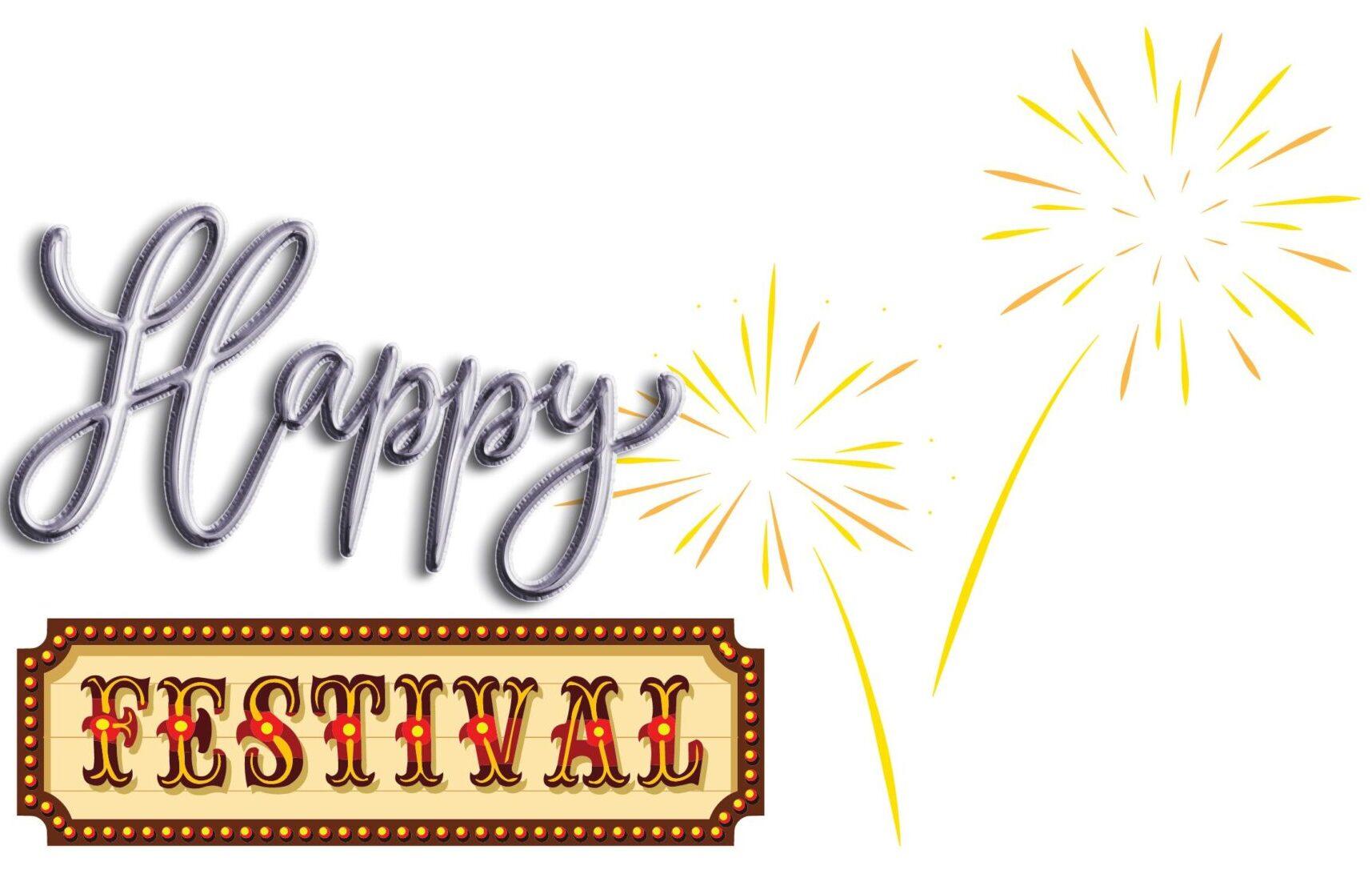
Festivals happy celebrating with joy and together. Happy words have a universal appeal that transcends cultural boundaries and connects with people from all around the world. While it may not be accurate to say that happy words specifically connect with all world festivals happy in a direct and explicit manner, the concept of happiness and joy is often intertwined with various cultural and religious celebrations throughout history.
Festivals happy, in their essence, are occasions of celebration and collective joy. They are rooted in cultural traditions, religious beliefs, historical events, or seasonal changes. Happiness and positive emotions play a vital role in these festive occasions, as they symbolize the spirit of unity, gratitude, and hope.
The history of festivals happy dates back thousands of years, with ancient civilizations embracing festivities as a way to honour deities, mark significant agricultural milestones, or commemorate historical events. In many cases, these celebrations were accompanied by rituals, dances, music, feasts, and expressions of joy.
As societies evolved, festivals became more diverse, reflecting the unique customs and beliefs of different regions and cultures. From the Chinese New Year to Diwali in India, from Christmas to Thanksgiving, and from Carnival in Brazil to Oktoberfest in Germany, festivals across the globe are associated with happiness and positivity.
Happy words, such as joy, celebration, laughter, love, and blessings, often find their way into festival-related expressions, greetings, and rituals. They are used to convey well wishes, express gratitude, and create an atmosphere of joy and merriment. These words evoke positive emotions and serve as a reminder of the collective human desire for happiness and connection.
Furthermore, festivals happy provide an opportunity for people to come together, set aside differences, and celebrate shared values. They foster a sense of community, promote social cohesion, and reinforce cultural identity. The collective experience of happiness during festivals strengthens the bond between individuals and creates lasting memories.
It’s important to note that while happiness is a common theme in festivals, the specific rituals and practices associated with each festival vary greatly. The historical origins of festivals can be traced back to specific cultural, religious, or historical contexts. For example, the joyous celebrations of Christmas stem from the Christian tradition of commemorating the birth of Jesus Christ, while the vibrant colors and music of Holi in India symbolize the arrival of spring and the victory of good over evil.
In summary, while happy words may not directly connect with every world festivals in a literal sense, the essence of happiness and joy is deeply ingrained in the history and tradition of festive celebrations. Festivals serve as occasions to express collective happiness, foster a sense of community, and commemorate significant cultural, religious, or historical events. They remind us of our shared human desire for happiness and unity, regardless of our diverse backgrounds and beliefs.
The Power of Happy Festivals
Understanding Cultural Significance
Festivals happy hold deep cultural significance in various regions. They reflect the values, beliefs, and traditions of a community, serving as a reminder of shared history and heritage. These festivals provide an opportunity to preserve and pass down cultural practices from one generation to the next, fostering a sense of unity and belonging.
Spreading Joy and Celebrating Life
The word “Happy” in festival names embodies the spirit of celebration and joy. These festivals are occasions to rejoice in life’s blessings, express gratitude, and embrace the positive aspects of existence. They serve as reminders to cherish the present moment, spread happiness, and strengthen the bonds of love and friendship.
Symbolism and Rituals
Festivals happy often incorporate symbolic rituals that hold deep spiritual or historical meanings. These rituals can vary widely, ranging from lighting candles and bonfires to offering prayers, exchanging gifts, or engaging in communal dances and songs. Each ritual carries its own significance, contributing to the overall experience of the festival and enhancing its joyful atmosphere.
Exploring Festivals happy around the World
Happy Diwali: The Festival of Lights
Diwali, known as the Festival of Lights, is one of the most prominent happy festivals celebrated in India and across the globe. It represents the triumph of light over dimness and great over evil. During Diwali, people illuminate their homes with earthen lamps, decorate with vibrant colours, exchange sweets and gifts, and participate in fireworks displays. The festivals happy embodies the spirit of joy, hope, and new beginnings.
Happy Holi: The Festival of Colors
Holi, widely known as the Festival of Colours, is a vibrant and exuberant celebration in India. It marks the arrival of spring and the triumph of good over evil. Participants gather in open spaces, smearing each other with bright-coloured powders and water, creating a kaleidoscope of colours. Holi is a time to let go of inhibitions, foster unity, and celebrate the beauty of diversity.
Happy New Year Celebrations
New Year celebrations, such as Happy New Year’s Day or Happy Lunar New Year, are observed worldwide with enthusiasm and anticipation. These festivities mark the beginning of a new chapter, a time for setting goals, making resolutions, and welcoming fresh opportunities. People come together with loved ones, share meals, exchange greetings, and engage in joyful activities to herald the coming year with positivity and optimism.
Happy Thanksgiving: Gratitude and Togetherness
Thanksgiving, primarily celebrated in the United States and Canada, is a joyful festival that fosters gratitude and togetherness. Families and friends gather to share a bountiful feast, expressing appreciation for the blessings in their lives. It is a time to reflect on the year’s harvest, show gratitude for abundance, and extend kindness to others. The festival emphasizes the importance of unity, compassion, and giving back to the community.
The Joyful Chaos of Festivals
Festivals happy elevate our spirits and infuse our lives with pure joy.
Amidst the lively atmosphere and colourful decorations, we are transported to a realm of happiness.
The laughter, music, and dancing envelop us, creating a sense of euphoria that is hard to replicate elsewhere.
The vibrant energy of festivals nourishes our souls and rejuvenates our spirits.
We feel a surge of positivity and optimism as we immerse ourselves in the festivities.
Festivals happy provide a much-needed respite from the monotony of everyday life, reminding us to cherish the moments of happiness.
Connecting Communities
Festivals happy bridge the gaps between individuals and communities, fostering a sense of unity and togetherness.
They create a shared experience that transcends age, gender, and social status.
Festivals happy offer everyone the opportunity to come together, celebrate, and bond over common traditions and customs.
Cultural festivals showcase the diversity and richness of a community, allowing us to appreciate different cultures.
By embracing diversity, festivals happy cultivate understanding, respect, and harmony among individuals.
Festivals happy often involve collaborative efforts of community members, thereby strengthening the bonds within neighbourhoods.
The collective spirit of festivals promotes a sense of belonging and social cohesion.
Conclusion
Festivals happy hold a special place in our hearts and cultures, bringing communities together and spreading joyous celebrations. These festivals embody the essence of happiness, unity, and cultural heritage. As we participate in these festivities, let us embrace the traditions, rituals, and values they represent. May the spirit of happiness, gratitude, and togetherness continue to inspire us not only during these festivals but in our daily lives.
“Celebrate the magic of festivals with a heart full of joy and a smile that brightens every moment.”
Happiness is a festivals
Remember, festivals and happiness are closely intertwined, and each festival holds its own unique significance in spreading joy and celebrating life.
Meaningless
“10 Things That Are Truly Meaningless 1. “I Should Be Further Along by Now”“I should…
Never Seen Happiness
Never Seen Happiness
If You’re Feeling Like You’ve Never seen Happiness what supposed to do? “I Don’t Deserve…
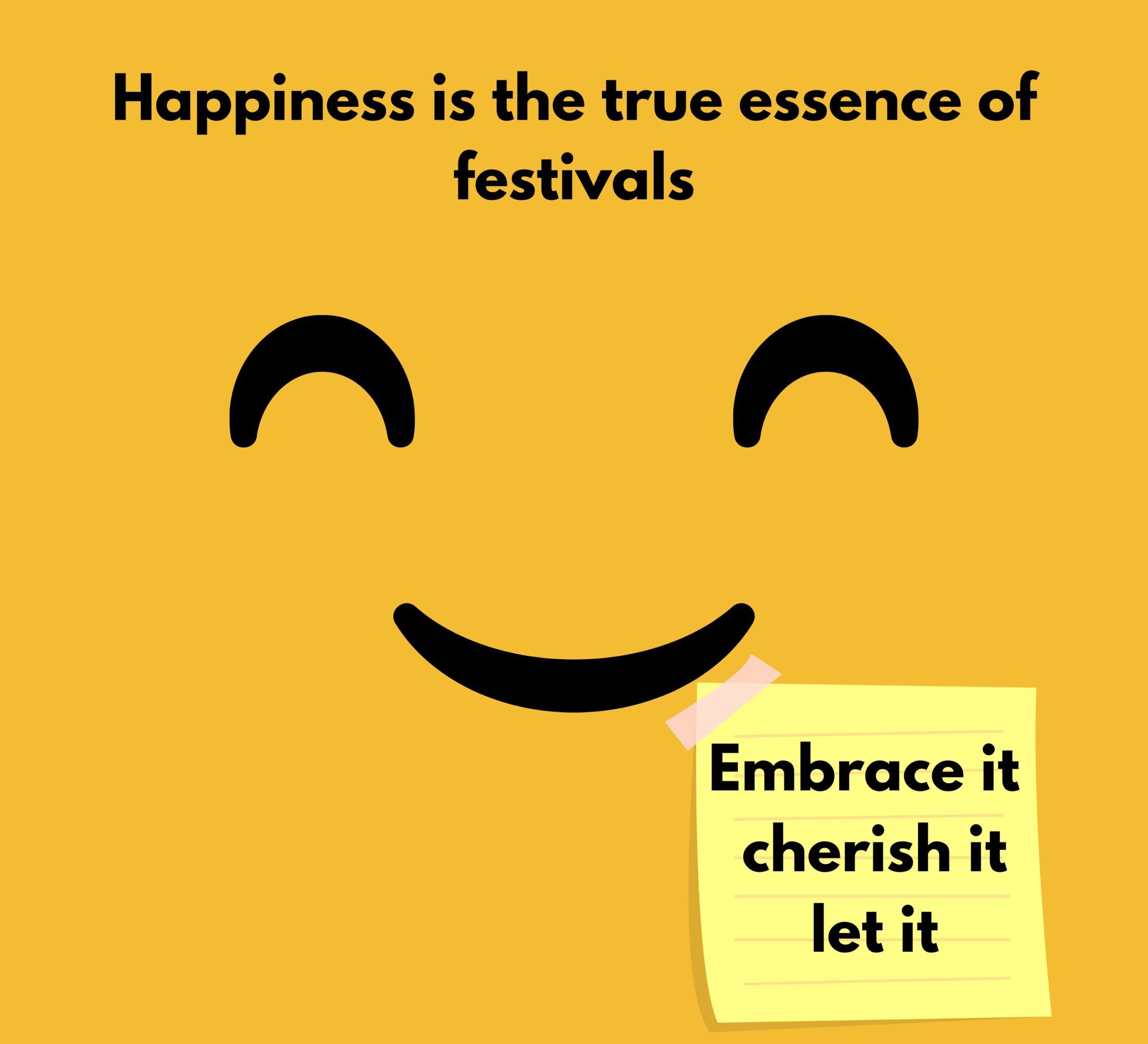
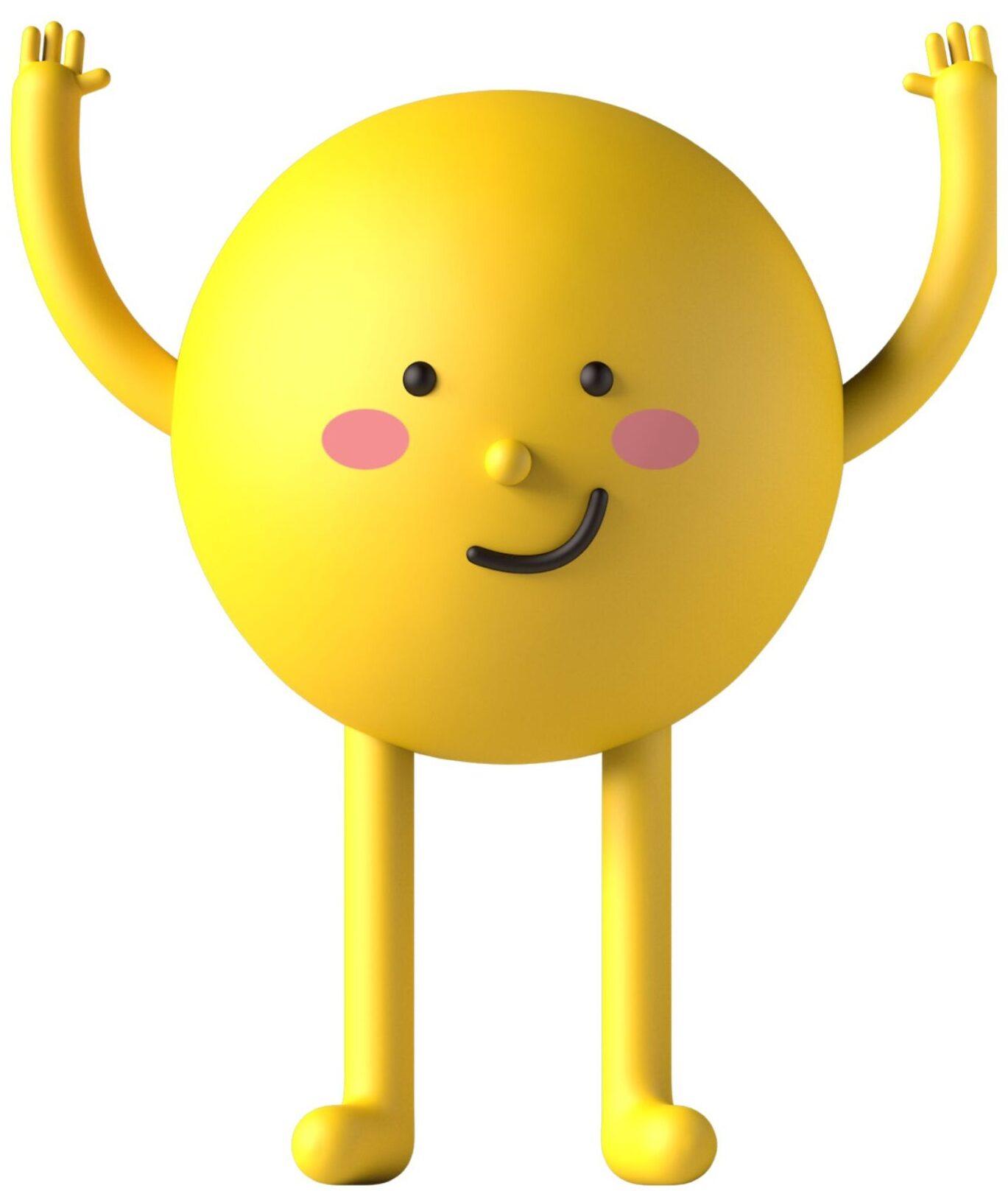
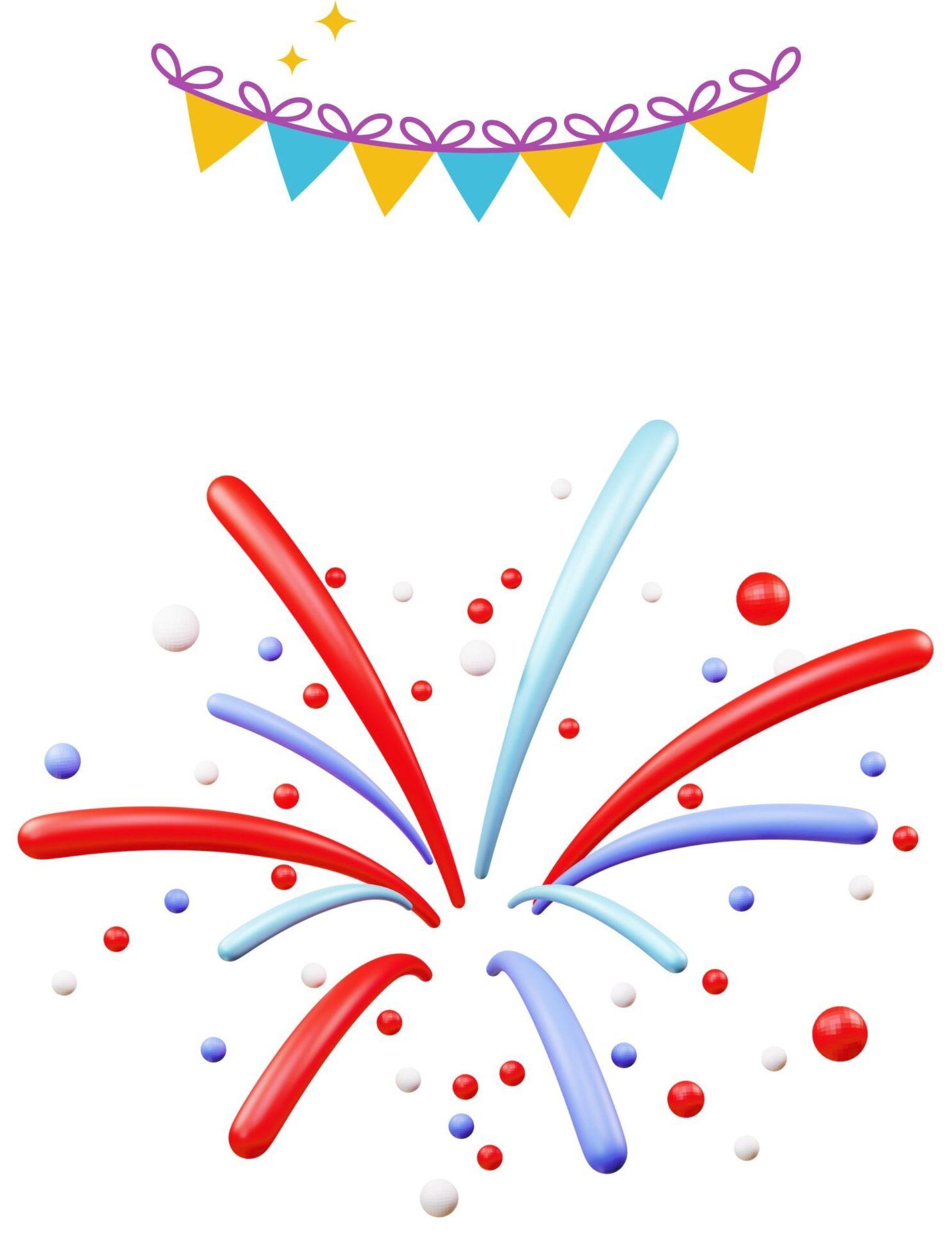
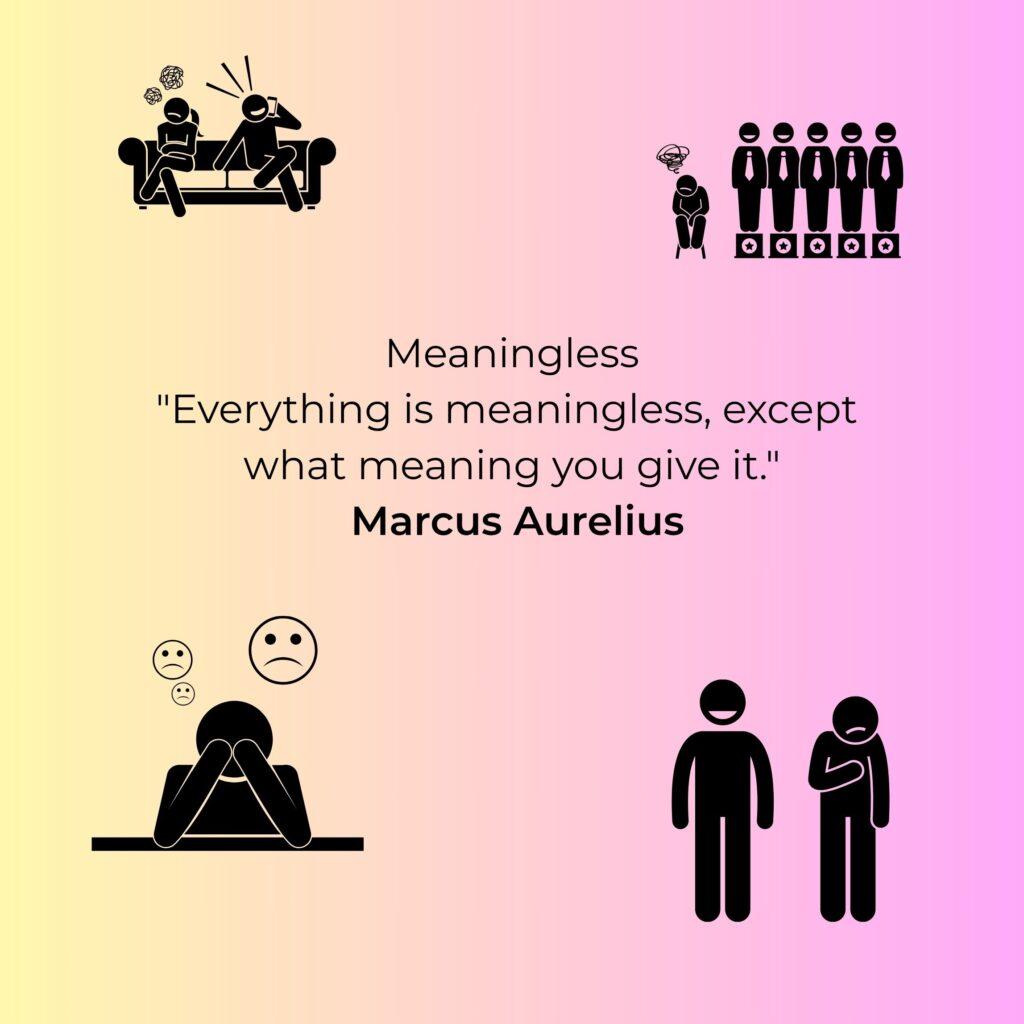





Leave a Reply